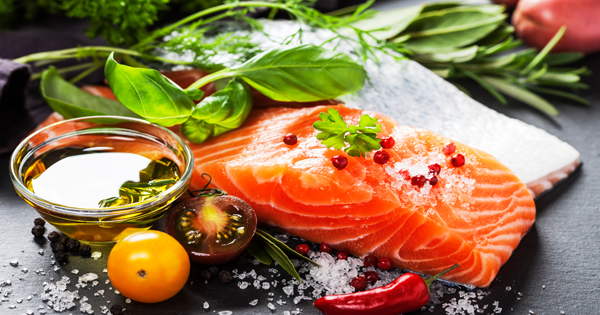Advertisement
The tides are changing in weight loss trends, which means there's a ton of confusion about where fat fits into the equation. Should we not be eating fat at all? Are there really good fats? Is all fat the same?
Cutting fat has long been recognized as an effective way to help you lose weight. But if that’s the only thing you’re doing, the results may be worse than you think.
When people choose “low-fat” foods over low-sugar or low-carb foods, there has to be some kind of trade-off. Fat is where we get a lot of flavor for our foods, so if we’re taking that out, what replaces it? For a lot of "low-fat" foods, the answer is, you guessed it: sugar and carbs. That’s the kind of switch that only leads to heart disease and type-2 diabetes.
So should we eat fat, even when trying to lose weight? Yes, we should. There is much more evidence that cutting back on sugar and refined carbs is the way to go for weight loss. Small amounts of fat, in moderation, is actually helpful for losing weight.
This isn’t to say that all fat is created equal. The wrong kinds of fatty foods are rich in calories and can pack on the pounds as much as any other high-calorie food. But eating healthy fats and cutting back on processed fats and sugars can help your body learn to use fat as its fuel source, so you’re burning off fat in your workout, not just useless, empty carbs. The right kinds of fats will also keep you full for much longer than a diet that’s high in carbs, even carbs that come mostly from fruits and veggies.
As far as good fat vs. bad fat? It mostly comes down to a choice between natural foods and processed foods. Natural foods are less likely to be high in saturated fats and artificial trans fats, and are more likely to have unsaturated and natural trans fats.
If you're looking for a foolproof way to consume good, healthy fats, look no further than omega-3 fatty acids. These help regulate your immune system and metabolism, and help with your memory and cognitive function. You can find omega-3 in such foods as:
- Wild fish (farm fish may have been given foods full of inflammatory fat)
- Flaxseed, hemp seeds, or chia seeds,
- Pasture-raised dairy products
- Natural oils, like olive or coconut oil
Do you see fried foods, rich cheeses, butter, or processed foods on there? Of course not. The key to responsible fat consumption is sticking to the good stuff.
So when it comes to picking which fats to eat, always go for natural, unprocessed, unrefined fat sources first. And don’t overdo it—moderation and portion control is the key to any balanced diet.




